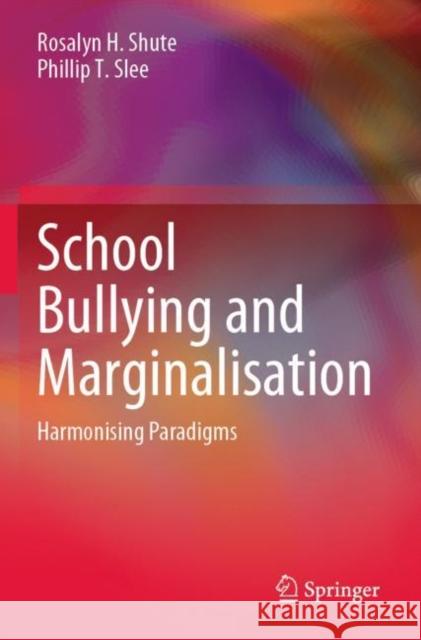School Bullying and Marginalisation: Harmonising Paradigms » książka
School Bullying and Marginalisation: Harmonising Paradigms
ISBN-13: 9789811676789 / Angielski / Miękka / 2023 / 307 str.
School Bullying and Marginalisation: Harmonising Paradigms
ISBN-13: 9789811676789 / Angielski / Miękka / 2023 / 307 str.
(netto: 498,38 VAT: 5%)
Najniższa cena z 30 dni: 501,19
ok. 16-18 dni roboczych.
Darmowa dostawa!
This book addresses, and seeks to harmonise, different paradigms for understanding school bullying. It sets out to examine two paradigms for conceptualising bullying, and the worldviews that underpin them. It uses a complex systems perspective to bring the two paradigms together in a holistic fashion. By doing so, it creates an integrated framework for conceptualising the many individual, relational and societal factors that are in dynamic interaction and play a part in promoting or reducing school bullying.This book draws upon a number of disciplines by way of background, including evolutionary, child development and social psychological theories of group behaviour and identity. It proposes that the human need for belonging is central to understanding bullying, and situates the topic within an understanding of gender and children’s human rights, bringing philosophical and moral perspectives to bear. It discusses practical ways forward, presents a systemic approach to bullying and application of complex adaptive systems methods to bullying research and evaluation. It serves as an introduction to such methods and suggests further creative ideas for policy, intervention practice, and teacher education about bullying.
This book addresses, and seeks to harmonise, different paradigms for understanding school bullying. It sets out to examine two paradigms for conceptualising bullying, and the worldviews that underpin them. It uses a complex systems perspective to bring the two paradigms together in a holistic fashion. By doing so, it creates an integrated framework for conceptualising the many individual, relational and societal factors that are in dynamic interaction and play a part in promoting or reducing school bullying.This book draws upon a number of disciplines by way of background, including evolutionary, child development and social psychological theories of group behaviour and identity. It proposes that the human need for belonging is central to understanding bullying, and situates the topic within an understanding of gender and children’s human rights, bringing philosophical and moral perspectives to bear. It discusses practical ways forward, presents a systemic approach to bullying and application of complex adaptive systems methods to bullying research and evaluation. It serves as an introduction to such methods and suggests further creative ideas for policy, intervention practice, and teacher education about bullying.











